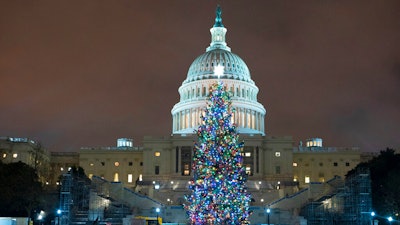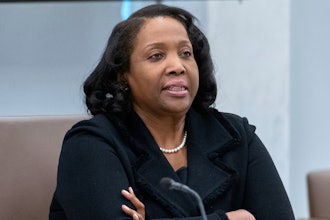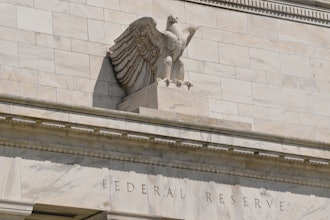
WASHINGTON (AP) — After months of Washington gridlock, Congress is set to act on a $900 billion pandemic relief package, finally delivering long-sought cash to businesses and individuals as well as resources to vaccinate a nation confronting a frightening surge in COVID-19 cases and deaths.
The relief package, agreed to on Sunday and expected to draw votes in Congress on Monday, would establish a temporary $300 per week supplemental jobless benefit and a $600 direct stimulus payment to most Americans, along with a new round of subsidies for hard-hit businesses and money for schools, health care providers and renters facing eviction.
House and Senate leaders planned votes for Monday, but the measure was still being completed. Lawmakers were eager to leave Washington and close out a tumultuous year.
It came together Sunday after months of battling, posturing and postelection negotiating that reined in a number of Democratic demands as the end of the congressional session approached. President-elect Joe Biden was eager for a deal to deliver long-awaited help to suffering people and a boost to the economy, even though it was less than half the size that Democrats wanted in the fall.
Biden praised the bipartisan spirit that produced the measure, which he called “just the beginning."
"This is a model for the challenging work ahead for our nation," Biden said Sunday in a statement.
“There will be another major rescue package for the American people,” Senate Majority Leader Mitch McConnell, R-Ky., said in announcing the agreement for the relief bill. “It is packed with targeted policies to help struggling Americans who have already waited too long.”
Democrats acknowledged it wasn’t as robust a relief package as they initially sought — or, they say, the country needs. House Speaker Nancy Pelosi vowed more to come once Biden takes office.
“It is a first step,” she said. “We have to do more.”
A fight over Federal Reserve emergency powers was resolved Saturday night by the Senate’s top Democrat, Chuck Schumer of New York, and conservative Republican Pat Toomey of Pennsylvania. That breakthrough led to a final round of negotiations Sunday.
Still, delays in finishing the agreement prompted Congress to pass a one-day stopgap spending bill to prevent a government shutdown at midnight Sunday.
The final agreement would be the largest spending measure yet. It combined $900 billion for COVID-19 relief with a $1.4 trillion governmentwide funding plan and lots of other unrelated measures on taxes, health, infrastructure and education. The governmentwide funding would keep the government open through September.
Passage neared as coronavirus cases and deaths spiked and evidence piled up that the economy was struggling. The legislation had been held up by months of dysfunction and bad faith. But talks turned serious in recent days as lawmakers on both sides finally faced the deadline of acting before leaving Washington for Christmas.
Schumer told reporters: “This bill is a good bill. Tonight is a good night. But it is not the end of the story, it is not the end of the job."
He added: “Anyone who thinks this bill is enough does not know what’s going on in America.”
On direct payments, the bill provides $600 to individuals making up to $75,000 per year and $1,200 to couples making up to $150,000, with payments phased out for higher incomes. An additional $600 payment will be made per dependent child, similar to the last round of relief payments in the spring.
The $300 per week bonus jobless benefit was half the supplemental federal unemployment benefit provided under the $1.8 billion CARES Act in March and would be limited to 11 weeks instead of 16 weeks. The direct $600 stimulus payment was also half the March payment, subject to the same income limits in which an individual’s payment phases out after $75,000.
The CARES Act was credited with keeping the economy from falling off a cliff during widespread lockdowns in the spring, but Republicans controlling the Senate cited debt concerns in pushing against Democratic demands. Republican politicians, starting with President Donald Trump, focused more on reopening the economy and less on taxpayer-financed steps like supplemental jobless benefits.
Progress came after a bipartisan group of pragmatists and moderates devised a $908 billion plan that built a middle-ground position that the top four leaders of Congress — the GOP and Democratic leaders of both the House and Senate — used as the basis for their talks. The lawmakers urged leaders on both sides to back off of hardline positions.
Republicans were most intent on reviving the Paycheck Protection Program with $284 billion, which would cover a second round of PPP grants to especially hard-hit businesses. Democrats won set-asides for low-income and minority communities.
After the announcement, Schumer and Pelosi, D-Calif., announced additional details, including $25 billion in rental assistance, $15 billion for theaters and other live venues, $82 billion for local schools, colleges and universities, and $10 billion for child care.
The governmentwide appropriations bill was likely to provide a last $1.4 billion installment for Trump’s U.S.-Mexico border wall as a condition of winning his signature.
The bill was an engine to carry much of Capitol Hill’s unfinished business, including an almost 400-page water resources bill that targets $10 billion for 46 Army Corps of Engineers flood control, environmental and coastal protection projects. Another addition would extend a batch of soon-to-expire tax breaks, such as one for craft brewers, wineries and distillers.
It also would carry numerous clean energy provisions, $7 billion to increase access to broadband, $4 billion to help other nations vaccinate their people, $14 billion for cash-starved transit systems, Amtrak and airports.
Democrats failed in a months-long battle to deliver direct fiscal relief to states and local governments, but they successfully pressed for $22 billion to help states and local governments with COVID-19-related health expenses like testing and vaccines.
The end-of-session rush also promised relief for victims of shockingly steep surprise medical bills, a phenomenon that often occurs when providers drop out of insurance company networks.






















